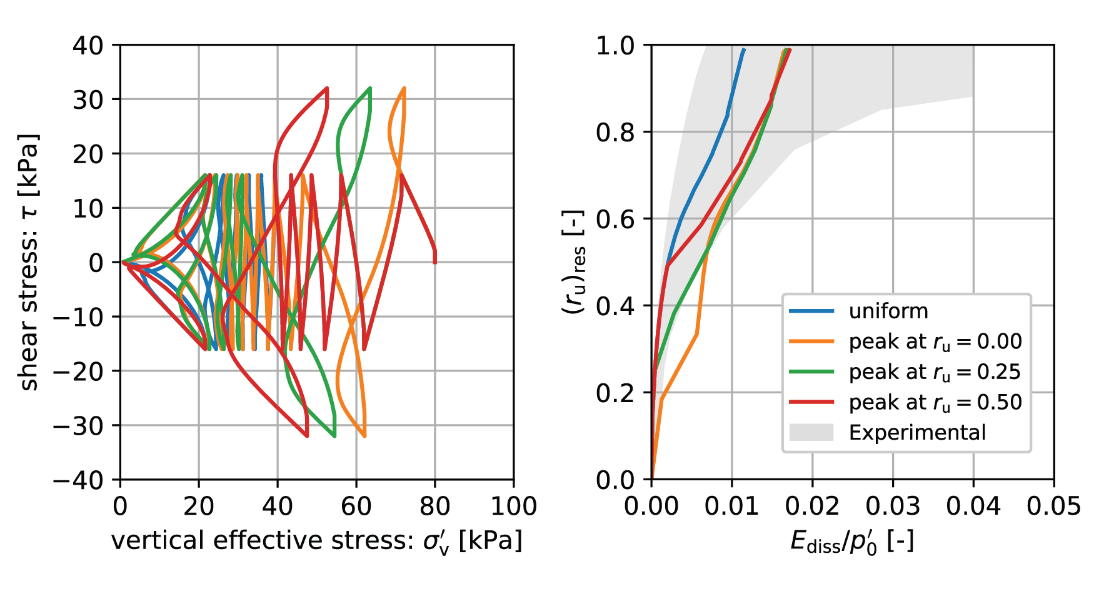Is energy dissipation the key to predict cyclic soil behaviour?
Research team:
Stavroula Kontoe, David M G Taborda, Julia Moller
Funder:
Leverhulme Trust
Research period:
2022-2024
Summary:
High-speed railways, construction of deep foundations, offshore wind generators and infrastructure in earthquake-prone regions, all share cyclic loading patterns which are rapidly changing direction and amplitude. These cyclic loads are then transferred to the supporting soil. Therefore, the safe and economic design of a wide range of structures is crucially reliant on our ability to simulate soil behaviour under repeated, cyclic loading. Current methodologies are mostly empirical, problem-specific and offer inadequate accuracy. We aim to develop a novel, unified computational approach to address this problem based on the unique links, identified experimentally, between dissipated energy and soil behaviour.

Key outputs:
Moller, J. K. (2023). IC MAGE Model 14 – bounding surface plasticity model for sands under static and cyclic loading (1.1). Zenodo. https://doi.org/10.5281/zenodo.7995996
Moller, J. K., Kontoe, S., Taborda, D. M. G (2023) Numerical investigation of energy dissipation in liquefiable soil deposits. SECED 2023 Conference, Cambridge, UK.
References:
Azeiteiro, R. J. N., Coelho, P. A. L. F., Taborda, D. M. G. & Grazina, J. C. D. (2017) Energy-based evaluation of liquefaction potential under non-uniform cyclic loading. Soil Dynamics and Earthquake Engineering, 92, 650–665. https://doi.org/10.1016/j.soildyn.2016.11.005.
Contact Geotechnics
Geotechnics
Civil and Environmental Engineering
Skempton Building
Imperial College London
South Kensington Campus
London, SW7 2AZ
Telephone:
+44 (0)20 7594 6077
Email: j.otoole@imperial.ac.uk
Alternatively, you can find a member of Geotechnics staff on the Department of Civil and Environmental Engineering website.
Follow us on Twitter: @GeotechnicsICL
We are located in the Skempton Building (building number 27 on the South Kensington Campus Map). How to find us
